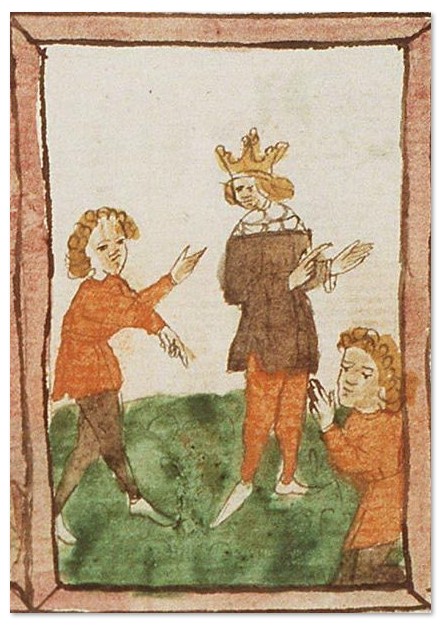It was not only sad, it was desperately unfair. George and Mandy had been looking forward to their retirement for years. They’d scrimped and saved and made detailed plans. They’d bought a campervan and kitted it out. George’s 67th birthday was going to be his last day at work, and then they’d be off to see the world!
Two weeks before his birthday, George had a heart attack and died on the way to hospital.
Those who are left are washed by torrents of emotions in the wide long days that follow a bereavement. For Mandy there was grief, and also anger. And regret, that they had been so preoccupied with their plans that they had not enjoyed the time they had together.
Looking Forward
It’s good to have things to look forward to, whether it’s a morning coffee or a weekend with the family or a hard-earned retirement. God understands this human need. He has set before us a reward that is more stupendous than we could possibly imagine:
No eye has seen, nor ear heard, nor the heart of man imagined, what God has prepared for those who love him
(1 Corinthians 2:9).
The Bible abounds with prophecies and promises of God’s Kingdom, when Jesus Christ returns and ‘the earth will be filled with the knowledge of the glory of the Lord as the waters cover the sea’ (Habakkuk 2:14). It’s a prospect which has encouraged God’s people throughout their lives, throughout history, through good times and bad times.
But He has deliberately not told us when the Kingdom will come. As Jesus himself said, ‘Concerning that day or that hour, no one knows, not even the angels in heaven, nor the Son, but only the Father’ (Mark 13:32). He’s given us pointers to look for in the Bible’s many prophecies (which are frequently explored in this magazine), and on the strength of those we believe that we here now are on the very cusp of Christ’s return—but one thing of which we can be certain is that when it comes it will take us by surprise.
‘For you yourselves are fully aware that the day of the Lord will come like a thief in the night’ (1 Thessalonians 5:2).
Why has God not told us the date of Christ’s return? Because He knows what we’re like. There’s a huge amount of work for His servants to do—growing their characters (1 Peter 1:16), looking out for each other (Galatians 6:2), preaching the Gospel (2 Timothy 4:2), doing good in the world (Galatians 6:10). If we had a date in the diary on which Christ would arrive, there’d be a temptation to slacken off and lose focus. So He keeps us in constant expectation. There’s a maxim which some people live by, which is particularly valuable for followers of Christ —“Live each day as though it’s your last.”
Use Your Talents
Jesus told a parable to illustrate how his followers should occupy themselves as they await his return. ‘Watch therefore, for you know neither the day nor the hour. For it will be like a man going on a journey, who called his servants and entrusted to them his property. To one he gave five talents, to another two, to another one, to each according to his ability. Then he went away’ (Matthew 25:13–15).
A ‘talent’ was a unit of currency in the Roman empire in Jesus’ time. The modern English definition of ‘talent’ is different, it means a natural skill or ability. Interestingly, the modern word is actually derived from the Bible word: in old English, the word was lifted straight out of Jesus’ parable and it meant a gift committed to someone by God, for use in His service. When you think about it, that’s an excellent definition of the word ‘talent’!
A talent was an enormous sum of money in the Roman world. It’s been calculated as the equivalent of 20 years’ wages for a labourer. This means the employer was entrusting his servants with a big responsibility, which would keep them fully occupied as they awaited his return.
The parable continues. The man returned from his journey and called his servants to give an account of the business they’d done with his money. There were those who had invested and grown their talents, to whom he said, ‘Well done, good and faithful servant. You have been faithful over a little; I will set you over much. Enter into the joy of your master.’ But there was one who had done nothing with his talent. The parable ends, ‘Cast the worthless servant into the outer darkness. In that place there will be weeping and gnashing of teeth’ (v. 30).
The parable has a timeless message for all Jesus’ followers. We all have talents of one kind or another. We need to identify them, and use them. Following Christ is about being busy in his service. Don’t count the days, make the days count!



